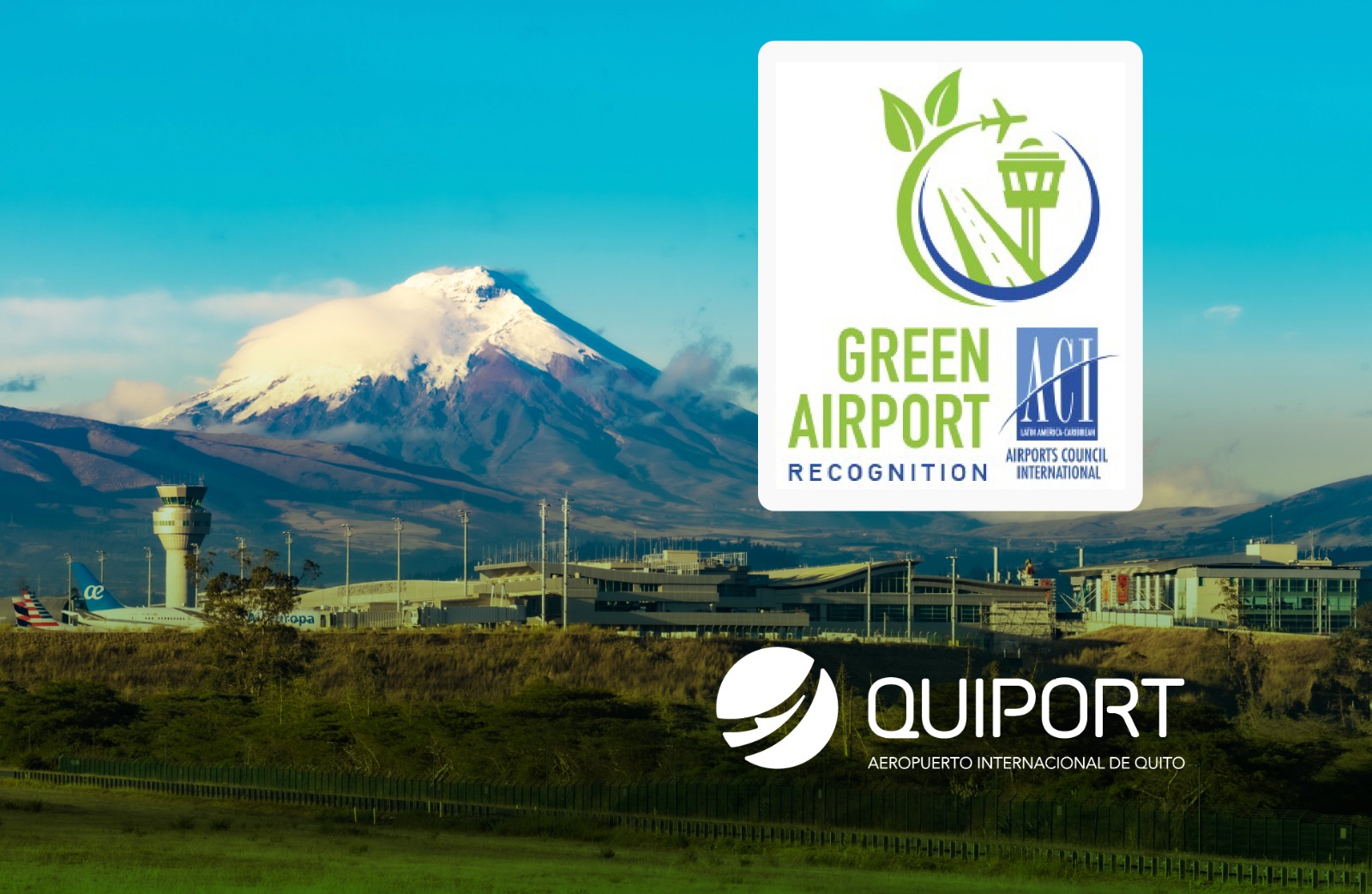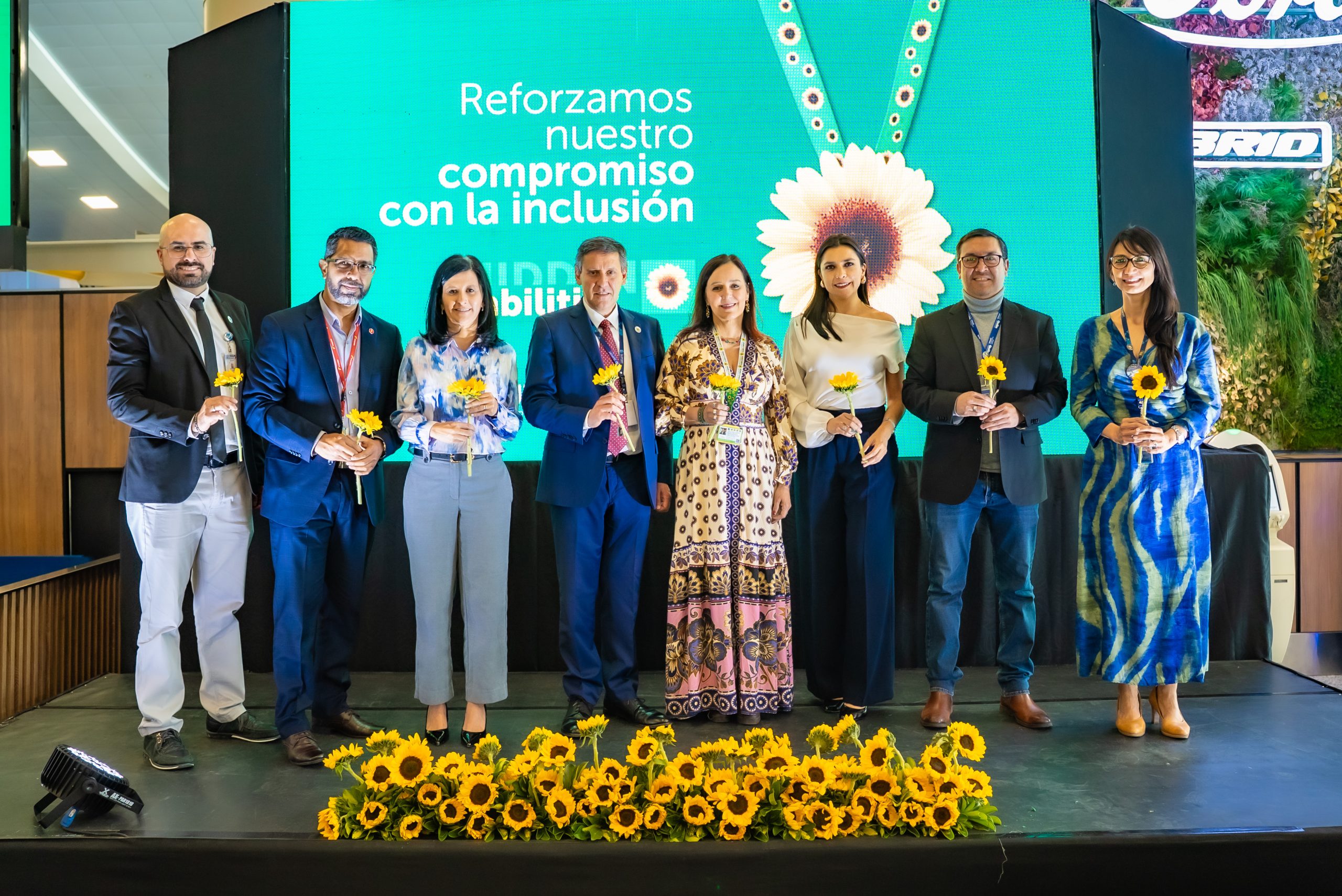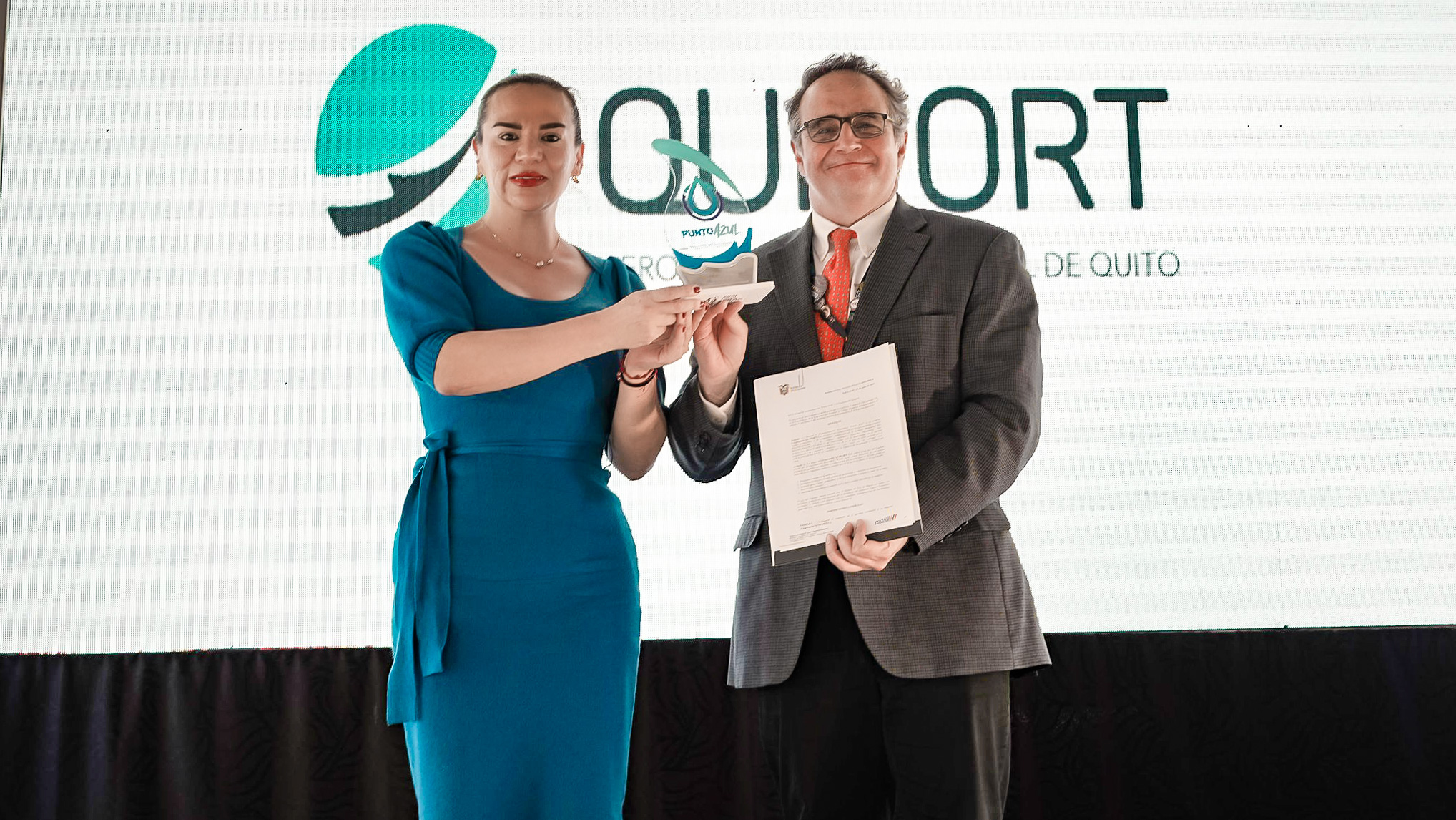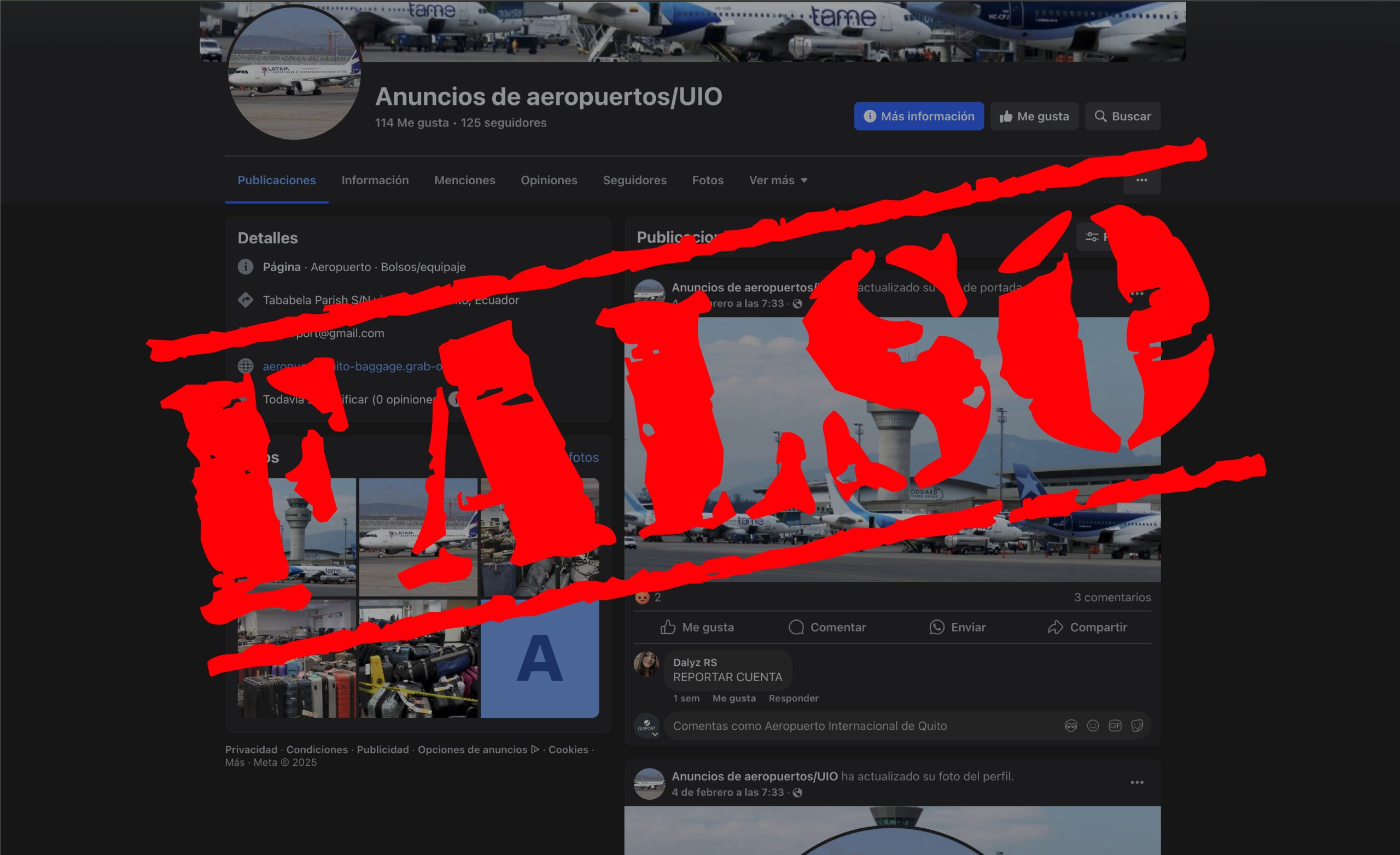Author: Rafael Orellana
Motiva S.A. sells its stake in Quiport to ASUR of Mexico

Motiva S.A., formerly CCR, one of the shareholders of Corporación Quiport, carried out a divestment process of its asset portfolio, which includes 20 airports in Brazil, Curaçao, San José, and its stake in Corporación Quiport, the concessionaire of Quito’s international airport.
On November 18, Motiva announced that it had reached an agreement for the sale of these assets to Grupo Aeroportuario del Sureste (ASUR), a well-known Mexican airport operator with a presence in several Latin American countries.
In this context, we consider it important to emphasize that operations at Mariscal Sucre International Airport—and all related infrastructure projects, regulatory procedures, operational processes, sustainability programs, investments, contractual initiatives, and ongoing strategic plans—continue without any alteration, pause, reconfiguration, or change in direction.
Corporación Quiport will fully maintain its team, organizational structure, management model, and performance standards, all of which are widely recognized both regionally and internationally.
Likewise, Quiport will continue to comply with all obligations under the Concession Agreement of Mariscal Sucre International Airport, its amendments, the applicable technical regulations, and the international standards governing civil aviation under the guidelines of the International Civil Aviation Organization (ICAO) and the Ecuadorian Civil Aviation Authority (DGAC).
In announcing the transaction, Motiva expressed its deep appreciation for the confidence that the Republic of Ecuador, the Municipality of Quito, and the Metropolitan Public Airport Services Company (EPMSA) have placed in the Quito airport project.
Quito Airport Expands International Connectivity with the Return of Aeroméxico in 2026

Quito’s Mariscal Sucre International Airport will once again offer direct flights to Mexico City with the resumption of Aeromexico operations beginning March 23, 2026. The route will have four weekly frequencies, and tickets are now available on the airline’s official website.
The flights will be operated with Boeing 737 MAX 8 aircraft, with capacity for 166 passengers.
With the return of Aeromexico, Quito Airport expands its international connectivity options on a high-demand route that also facilitates connections to multiple destinations in North America, Europe, and Asia. Through the Aeroméxico network, passengers will be able to access cities such as Monterrey, Guadalajara, Cancún, Mérida, Querétaro, Huatulco, and Oaxaca, as well as international destinations such as Montreal, Toronto, Amsterdam, London, Madrid, Paris, Rome, Tokyo, and Seoul.
Quiport’s President and CEO, Ramón Miró, highlighted the importance of this announcement: “We are very pleased that Aeromexico flights are resuming to this attractive and highly in-demand destination, both for leisure and business travelers. This return consolidates Quito as a key point in the regional airline network and allows us to continue expanding our offerings for those traveling to and from our country.”
For his part, José Zapata, Aeromexico’s Vice President of Sales for the United States, Canada, and Latin America, emphasized: “We are very happy to be able to return to Quito, a destination where we first landed in 2013. We are confident that the reactivation of flights between Mexico and Ecuador will be very beneficial for our customers in both countries. Thanks to a schedule on Mondays, Tuesdays, Thursdays, and Saturdays departing from Quito, they will be able to connect to any of the 100 destinations Aeroméxico offers on its domestic and international network.
Flights will have the following operating schedule:

Quito Airport is recognized for achieving coexistence between biodiversity and air operations

• Instead of keeping wildlife away, Quito Airport coexists with it — transforming part of its land into a wildlife sanctuary.
• The “UIO Natural Laboratory” project converts 150 hectares of airport land into a living space for conservation, ecological restoration, and science.
• Over 72 hectares reforested, 12,000 native trees planted, 400 tons of CO₂ captured annually, and more than 160 wild animals released.
Quito, October 7, 2025. – Quito’s Mariscal Sucre International Airport received the Green Airport Recognition 2025, awarded by the Airports Council International for Latin America and the Caribbean (ACI-LAC), thanks to an innovative project developed by Corporación Quiport, titled Laboratorio Natural UIO (UIO Natural Laboratory), which transforms part of the airport premises into a living space for conservation, restoration, and science.
A natural laboratory inside the airport
The Laboratorio Natural UIO spans 150 hectares within the airport’s concession area, where biodiversity is protected, restored, and studied in harmony with air operations. Quiport has developed this pioneering model at Mariscal Sucre — the first of its kind in Ecuador and one of the few in the world to achieve safe coexistence between wildlife and aviation.
Unlike the traditional airport approach — which seeks to keep animals away for safety reasons — Quito has demonstrated that nature can coexist harmoniously with air operations when there is proper planning, scientific monitoring, and responsible environmental management.
What happens inside the Laboratorio Natural UIO?
• Ecological restoration: Over the past decade, 72 hectares of Andean dry forest have been restored with native species, capturing around 400 tons of CO₂ per year and regenerating essential ecosystem services.
• Biodiversity: More than 100 species have been recorded, including endemic and threatened ones such as the Quito marsupial frog, the Andean rabbit, and Soderstrom’s harvest mouse.
• Applied research: Camera trap and satellite monitoring studies confirmed the presence of the Andean fox, with home ranges of up to 7.8 km², showing that the airport serves as a safe refuge for native species.
• Operational safety: The presence of raptors, such as owls, contributes to the natural control of rodents, reducing runway risks and demonstrating that surrounding wildlife can safely coexist with aviation.
• Rehabilitation and release: In coordination with the environmental authority, over 160 rescued wild animals — including birds, mustelids, and snakes — have been released in this area over the past two years.
• Education and participation: Airport staff and nearby communities participate in citizen science and wildlife observation programs, strengthening the link between conservation and air operations.
Quiport’s leadership in airport sustainability
Under the leadership of Corporación Quiport, responsible for the comprehensive management of Mariscal Sucre International Airport and the implementation of its environmental strategy, the airport has consolidated a management model that combines operational safety, sustainability, and environmental commitment.
This recognition adds to a history of regional leadership: it is the third environmental project by Quiport recognized with the Green Airport Recognition by ACI-LAC, reinforcing its position as a benchmark for airport sustainability in Latin America.
“The Laboratorio Natural UIO is a source of pride for Quito and for the Latin American airport sector. Since the construction and start of operations, Quiport has worked to understand the ecosystem in which we operate and to design projects that restore and conserve it. I thank ACI-LAC for recognizing the initiatives that airports across Latin America and the Caribbean are implementing to protect the environment,” said Ramón Miró, President and CEO of Quiport.
Rafael Echevarne, Director General of ACI-LAC, added: “Quiport has shown that an airport can be both a driver of connectivity and an ally of the environment. At ACI-LAC, through the Green Airport Recognition program, we celebrate its commitment to biodiversity integration and the implementation of Nature-Based Solutions, reflecting the purpose of our initiative — to promote a more sustainable and environmentally conscious aviation sector in Latin America and the Caribbean.”
A model for sustainable aviation
The recognition was presented during the ACI-LAC Annual Assembly, Conference, and Exhibition 2025, held in Trinidad and Tobago, which brought together airport industry leaders from across the region.
This achievement reaffirms Mariscal Sucre International Airport as one of the few in the world to successfully integrate biodiversity conservation with air operations, establishing itself as a benchmark for sustainable aviation and Nature-Based Solutions (NbS) in airport management.
More information about the award:
https://aci-lac.aero/horus/news/aci-lac-destaca-el-compromiso-de-aeropuertos-y-jovenes-profesionales-con-la-biodiversidad-y-la-seguridad-digital&lang=es
___________________
Quito Airport joins the Sunflower Program to enhance inclusive support for passengers with hidden disabilities

- Passengers with hidden disabilities can request a Sunflower lanyard free of charge and without the need for medical documentation.
- The lanyard discreetly communicates to airport staff that the wearer may require more time, clearer explanations, or adapted treatment to meet their needs.
- More than 900 staff members have been trained to provide more conscious service, in a process that included specialized training and direct participation of people with non-visible disabilities.
Quito’s Mariscal Sucre International Airport announced its incorporation into the international Hidden Disabilities Sunflower program, an initiative aimed at improving accessibility and travel experience for people with non-visible disabilities such as autism, anxiety, epilepsy, fibromyalgia, diabetes, among others.
🌻 Why is it important and how to access the program?
In dynamic environments like an airport, people with non-visible disabilities may have special needs that are not always obvious to those providing passenger assistance. The Sunflower program is designed for these passengers who could benefit from care that considers these needs during their journey through the airport.
How does it work?
Individuals who need it may voluntarily request a sunflower lanyard, available at the information desk in the departures area.
The lanyard is provided free of charge and without the need to present medical documentation. This discreet symbol signals to airport staff that the wearer may require more time, detailed explanations, or simply more empathetic treatment. While it does not grant benefits such as priority lines nor exempts passengers from going through all processes and controls, it facilitates more conscious and adapted service to the passenger’s needs. The guideline for airport staff is simple yet powerful: “How can I assist you?”
🤝 An airport community committed
The program’s implementation has been possible thanks to the collective commitment of the entire airport community, which recognizes that continuously improving the passenger experience is a shared responsibility.
From its initial stages, the process was participatory: Quiport, as the concessionaire, promoted dialogue spaces with representatives of airport stakeholders such as airlines, security, immigration, and commercial tenants to ensure coherent, comprehensive, and sustainable implementation.

🔎 Joint diagnosis and concrete actions
As part of the development, a tour of the facilities was carried out with people with different disabilities, in collaboration with the Rett Ecuador Foundation, to identify possible opportunities for improvement in signage, infrastructure, and customer service. Input was also incorporated from the initiatives of the Metropolitan Public Airport Services Company (EPMSA), which had been working on care protocols for people with autism at security checkpoints.
In addition, Quiport staff already had prior training in sign language, further strengthening an institutional culture that is sensitive and prepared.
👥 Training with real impact
The training component was key: more than 900 people from 15 companies operating at the airport participated in specialized training sessions, led by experts, a representative from an airport experienced with Sunflower, and individuals with non-visible disabilities who shared real-life experiences and practical recommendations.
This effort adds to the continuous improvement processes led by the Passenger Experience Committee, which permanently promotes training in service quality and customer care.
🌍 An approach aligned with a long-term vision
The incorporation of the Sunflower program is not an isolated achievement. The terminal has previously been recognized with the Progressive Inclusive Seal from the Municipality of Quito and is the first in the country to obtain Level 1 Accessibility Accreditation for Airports (AEA), granted by the Airports Council International (ACI).
🗣 Statements
Ramón Miró, President and CEO of Quiport:
“One of the greatest satisfactions I take from implementing the Hidden Disabilities Sunflower program is witnessing that the entire airport community is genuinely committed to learning how to effectively engage with individuals with hidden disabilities. We believe that true excellence in service is rooted in empathy. We are proud to have a team that is sensitized and trained to provide real support to those living with non-visible conditions. This program not only transforms the way we serve but also the way we understand inclusion.”
Flavia Callafange, Regional Director for Latin America of Hidden Disabilities (Sunflower):
“I would like to express my sincerest gratitude for the effort and dedication you have put into the HD Sunflower project. We are very happy that Quito Airport has joined this important initiative. This is a significant step towards a more inclusive city and country. I appreciate your continued commitment and collaboration in this project.”
Isabel Maldonado, Executive Director of Rett Foundation:
“At Rett Foundation, we had the opportunity to accompany Quiport in this process, which demonstrates how companies can lead real transformations toward inclusion. The participation of people with disabilities in all spaces is key to guaranteeing their rights. We applaud and congratulate this initiative, which marks an important step toward more conscious, empathetic, and accessible care.”
🌻 A symbol that opens doors
In an airport recognized for its operational, environmental, and service excellence, inclusion today is a key pillar in the continuous improvement of passenger experience. The implementation of the Sunflower program reinforces this commitment, offering a tangible tool to make air travel a more human, empathetic, and mindful experience.
Quiport’s water management at Quito Airport receives the “Punto Azul” award from the Ministry of the Environment

In a context where sustainability is increasingly a priority, Quito’s Mariscal Sucre International Airport becomes the first airport in the country to receive the Punto Azul distinction, awarded by the Ministry of the Environment, Water and Ecological Transition (MAATE), in recognition of Corporación Quiport water management efforts within airport operations, promoting ecosystem conservation, environmental restoration, and efficient water use.
🔹 Among the main actions supporting this distinction are:
- Wastewater treatment, with 99% efficiency in removing contaminants.
- Rainwater collection and management, as a preventative measure against flooding and as a tool for adaptation to climate change.
- Water reuse in cleaning processes at the waste management center.
🌱 One of the most significant initiatives is the 17-hectare rainwater reservoir, a nature-based solution that allows for water storage and, at the same time, mitigates operational risks by reducing the presence of wildlife in critical areas, strengthening airport security.
📣 Ramón Miró, President and CEO of Corporación Quiport, stated:
“Receiving the Punto Azul award is a profound honor for us because it represents much more than an award: it is a testament to our committed and consistent environmental management at Quito International Airport. At Quiport, sustainability is a daily practice that guides every one of our decisions. Water is a vital resource that we must protect. This recognition motivates us to continue working with respect for nature and a firm commitment to the future.”
📣 María Luisa Cruz, Minister of Environment, Water, and Ecological Transition
“Today we proudly celebrate that Quiport is the first company in the airport sector to receive the Punto Azul. This is, without a doubt, a milestone for the country. We congratulate Quiport and its technical and management team for achieving this distinction, which is not only an institutional award, but a concrete expression of co-responsibility between the State, the productive sector, and citizens.”
The Punto Azul recognition, valid for two years, reaffirms Quiport’s commitment to environmentally responsible management, aligned with the highest international sustainability standards in the airport industry. This distinction highlights an operating model where water conservation is not only a technical practice, but also a strategic decision.
🌍Because flying into the future also means caring for the planet.
Quiport: sustainability that transforms, recognized in the ranking of responsible companies

Quiport was recognized in the IV Ranking of Entrepreneurs and Companies Committed to Sustainability in Ecuador, prepared by Metro Ecuador in collaboration with its parent company, Metro World News. This study recognizes those who promote the Sustainable Development Goals (SDGs) and work in alignment with the UN 2030 Agenda.
In this edition, Quiport ranked 19th among 32 companies recognized for their commitment to sustainability and for contributing to the country’s transformation through responsible and ethical management.
The ranking was constructed from a survey of managers, representatives of the private sector, academia, international organizations, and chambers specializing in sustainability, considering companies with an annual turnover of more than $5 million in Ecuador.
“The fact that Quiport is included in this ranking alongside renowned companies in the country reaffirms our conviction that sustainability is an essential part of our direction and motivates us to continue managing an airport aligned with high standards of responsibility, excellence, and respect for the environment and the community,” said Ramón Miró, President and CEO of Quiport.
Quiport flies high in inclusion: wins award for excellence in gender equity in Latin America and the Caribbean

Corporación Quiport, the concessionaire of Quito’s airport, has been awarded the First Prize for Excellence in Gender Equity in Aviation in Latin America and the Caribbean, in the Sustainable Champion of Gender Equity category. This award is granted through a joint initiative of the International Civil Aviation Organization (ICAO), the Regional Safety Oversight Cooperation System (SRVSOP), and the EU (European Union)-Latin America and Caribbean Aviation Partnership Project II.
In this first edition of the award, 15 organizations from across the region submitted their applications, which were evaluated by a panel of five international experts from ICAO, the European Union Aviation Safety Agency (EASA), and the SRVSOP. The jury highlighted the inspiring efforts of all the proposals, but emphasized that Quiport’s bid was comprehensive, structured, and delivered concrete, measurable results.
In the words of the committee: “Equity and inclusion are core values for Quiport, supported by clear policies, a solid strategy, a safe work environment, and initiatives that actively promote female leadership and inspire future generations.”
Quiport has integrated diversity and respect as core values into its organizational DNA. With the support of senior management and shareholders, and aligned with the United Nations’ SDG 5: Gender Equality and Women’s Empowerment, we have developed a structured strategy to:
🔹Increase the presence of women in leadership positions.
🔹Implement inclusive selection processes.
🔹Provide technical training in traditionally male-dominated fields.
🔹Strengthen harassment prevention programs.
🔹Contribute to innovation and increased engagement through the exchange of experiences stemming from diversity.
“This award recognizes a path that we at Quiport have been pursuing with conviction for several years. Gender equity is a clear expression of our ESG (environment, society, and governance) management, in its social component, and is integrated into our organizational culture as an essential principle. We are excited to see that there are organizations that promote this approach in the aeronautical industry, and we are proud to see the constant work of our team recognized to build a more just, inclusive, and diverse environment,” said Ramón Miró, President and CEO of Corporación Quiport.
Furthermore, the award also recognized Quiport’s active participation in national and international forums, consolidating its role as a regional benchmark on equity issues. Through this participation, we promote equity as a cross-cutting theme, share best practices, and learn from colleagues inside and outside the industry.
With this award, Quiport consolidates its leadership in the management of environmental, social, and governance issues, not only in Ecuador but also regionally, strengthening its position as a model for real and sustainable transformation in the aeronautical industry.
Learn more here:
https://eu-lac-app.eu/project-activities/prize
🌍✈️ Celebrating progress in aviation! We are proud to announce the… | ICAO South American Regional Office
Quito Airport: Best in Latin America and the Caribbean According to Its Passengers

- The Airports Council International (ACI) recognized Quito Airport through the ASQ program, based on live surveys conducted with more than 1,956 travelers in 2024.
- The surveys cover 53 questions, ranging from satisfaction with each process and service to emotions, processing times, and passenger profiles.
- This is the fourth time that Quito Airport has won this award in the 5 to 15 million passenger category.
Mariscal Sucre International Airport has been named Best Airport in Latin America and the Caribbean in the 5 to 15 million passenger category by the prestigious Airport Service Quality (ASQ) program of the Airports Council International (ACI), in partnership with Amadeus. This recognition, based on passenger feedback, highlights service excellence and reinforces the airport’s leadership in the region for the 2024 assessment.
ASQ is recognized as the world’s leading benchmarking program for evaluating the passenger experience at airports. Its methodology is based on live surveys administered directly to travelers at the airport, capturing their satisfaction levels on the day of their trip. The ASQ surveys cover more than 30 key indicators of the passenger experience, offering a detailed assessment of service quality. The year 2024 was a milestone for the ASQ program, with nearly 700,000 surveys completed worldwide.
Ramón Miró, President and CEO of Quiport, the company that operates Quito Airport, emphasized the significance of this recognition: “This award reaffirms passengers’ trust in the quality of our services and motivates us to continue innovating to raise standards of excellence in the airport industry. We are currently working on expanding the airport to offer greater capacity and more options for our travelers, always prioritizing quality and efficiency. I thank our team and the entire airport community for their dedication, effort, and commitment to providing an exceptional experience to every passenger.”
As part of its philosophy of service excellence and continuous improvement, Corporación Quiport has led Quito Airport’s participation in the ASQ program since 2014. Over the years, Mariscal Sucre Airport has won this award four times as the Best Airport in Latin America and the Caribbean in the 5 to 15 million passenger category.
Justin Erbacci, ACI’s Global Director General, stated: “In today’s rapidly evolving world, where passenger expectations are higher than ever, airports must continuously push the boundaries of service to stay ahead. The 2024 ASQ Awards recognize airports that create seamless and memorable experiences, transforming the entire passenger journey and shaping the future of air travel.”
Mariscal Sucre International Airport has been distinguished by leading air transport evaluation organizations for its service quality and operational efficiency. Additionally, it has positioned itself as the main airport of the country’s air connectivity, offering modern facilities, high safety standards, and a continuous commitment to sustainability.
Check out the details of the ASQ awards on the ACI website here:
https://aci.aero/programs-and-services/asq/asq-awards-and-recognition/
Scheduled closures of Quito airport for preventive maintenance

Corporación Quiport, concessionaire of Quito International Airport, informs our passengers, users and the general public that, due to preventive maintenance work on the runway, air operations will be suspended on the following dates:
• Saturdays April 5th and 12th
• Saturdays May 10th, 17th and 31st
• Saturdays June 7th, 14th, 21st and 28th
• Saturdays September 6th, 13th and 20th
Closing hours will be from 02:00 to 14:00.
Saturdays have been chosen to carry out preventive maintenance work because they are the days when there are fewer air operations. No runway closures have been planned for the months of July and August so as not to affect the peak summer season. These works are essential to ensure the safety and efficiency of air operations and prevent unforeseen closures for emergency corrective maintenance.
The closure schedule has been coordinated and authorized by the Directorate General of Civil Aviation (DGAC). Likewise, the airlines that operate at the airport have been notified through the respective NOTAM* issued by the DGAC, which is the official communication of universal character for those involved in the aviation activity.
Although any changes in itineraries, rescheduling or cancellations will be promptly reported by the airlines, we recommend that passengers with flights scheduled on these dates contact their airline directly for updated information. Contacts are available at: https://www.aeropuertoquito.aero/aerolineas/.
We appreciate your understanding and regret any inconvenience that these works may cause. Their completion is essential to keep the airport infrastructure in optimal conditions.
*The NOTAM published refers to the months of April, May and June. The NOTAM for September closures will be published within three months prior to the closing date as required by the regulations.
Alert about fake profiles that use the name of Quiport and the Quito airport for scams

Corporación Quiport, concessionaire of the Quito airport, alerts citizens about the presence of fake profiles on social networks that use its name and that of the airport for fraudulent purposes. These deceptive accounts publish non-existent job offers or promote the supposed sale of lost or abandoned suitcases.
It has been identified that these profiles request money from interested parties under different pretexts, such as payment for trainings that according to them, guarantees a job or deposits to acquire suitcases with valuable content. To give greater credibility to their publications, the scammers create fake profiles and include comments from supposed beneficiaries.
Corporación Quiport calls on the community not to be fooled and reiterates that:
• Neither the Quito airport or Quiport sell lost or abandoned suitcases.
• They do not offer jobs through social networks or request money for hiring processes.
Since these scams are spread on social media and the perpetrators constantly create new accounts, citizens are urged to remain alert, avoid sharing personal information and report any suspicious profile on the corresponding social network.
For official information, it is recommended to consult only the communication channels of Quiport and the Quito airport:
• Facebook: Aeropuerto Internacional de Quito
• Instagram: @aeropuertouio
• X (Twitter): @AeropuertoUIO
